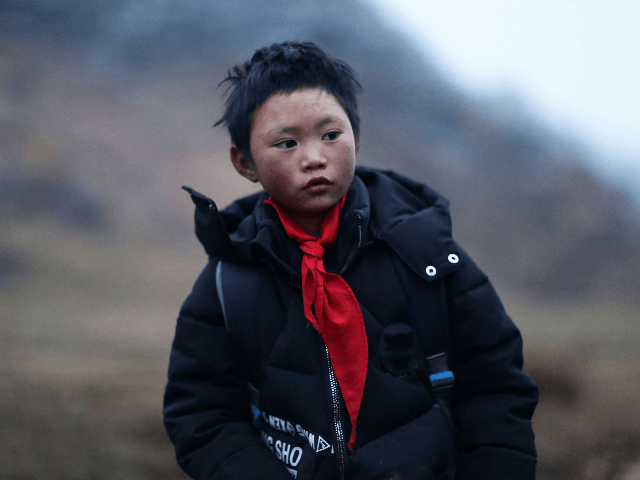The father of China’s “Ice Boy” Wang Fuman, a then-eight-year-old photographed with a head covered by icicles after an hour-long walk along a frigid mountain path to get to school, said on Thursday his family has been denied public assistance despite the viral sensation caused by the photo, while most of the donations sent by concerned Chinese citizens were confiscated and given to other children.
Wang Fuman’s photo captured the Chinese public’s imagination a year ago when he arrived at school with his head and eyebrows covered in ice. His plight was seen as even more acute because his parents had to leave their children behind to seek jobs in other cities, relying on other relatives to look after Wang Fuman and his 11-year-old sister. At the time the “Ice Boy” photo was taken, the children were living in a mud hut.
Public expressions of sympathy were soon followed by donations of warm clothing and money for his family.
According to his father Wang Gangkui’s remarks on Thursday, however, the family remains impoverished because it was turned down for means-tested public assistance again last year, for the fifth year in a row, despite his son’s viral video fame.
“It’s unfair and unjust that my application wasn’t approved. There are allegations in media reports that I have various assets, and they’re just not true. And neither am I trying to take advantage of my son’s fame,” Wang Gangkui said, as quoted by the South China Morning Post.
The elder Wang was referring to criticism on the Internet that his family is “greedy” and seeks to exploit Wang Fuman’s fame. Some of the critics assume the family must be in comfortable shape after receiving over $40,000 in donations, but Wang Gangkui said the vast majority of the money was confiscated by the government-run charity organization founded in Wang Fuman’s name and given to other children at the school. He denied rumors that the family has assets it has concealed from the public, ranging from multiple cars to cattle.
The Wang family’s situation is much improved over last year: they now live in a small two-story house instead of a mud hut, Wang Gangkui earns a decent salary working at a local construction site, and the school has a heated dormitory where Wang Fuman can stay during the school week. The house has been cited as a reason for denying the family public aid, but Wang Gangkui maintains he had to take out a sizable loan to pay for it.
A private school with boarding facilities offered to take the boy in, but only a week after he began his lessons the offer was rescinded due to extensive media attention and official scrutiny. In a bitter twist, Wang Fuman was booted out of a private school he loved because the Chinese Communist Party wanted to use him as a poster child for extreme poverty, which it has ostentatiously vowed to eliminate by the end of 2020, and the faculty could not deal with all of the demands for inspections and interviews.
“I’m illiterate and I don’t understand why this school has kicked us out,” Wang Guankui fumed after his son was asked to leave the private school in March 2018.
China reportedly has about 61 million “left-behind children,” rural village kids looked after by elderly grandparents or other relatives while their parents work in big cities. Some of them are disabled children abandoned by parents who cannot shoulder the stress or financial burden of caring for them.
A large percentage of left-behind children are believed to suffer from emotional or physical health problems. Some of them have been injured or killed due to parental neglect and harsh rural living conditions. In one especially shocking case from 2017, a group of left-behind children committed suicide by swallowing pesticides. The youngest was only five years old.

COMMENTS
Please let us know if you're having issues with commenting.